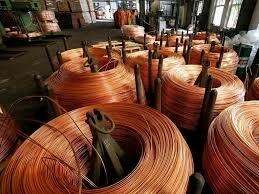Bloomberg – Rubber futures declined to a three- week low on speculation shipments from Thailand, the world’s largest producer, may increase as the nation is expected to end a price-support program as planned.
The contract for July delivery fell as much as 0.7 percent to 312.5 yen a kilogram ($3,335 a metric ton), the lowest level since Jan. 30, before trading at 313.7 yen on the Tokyo Commodity Exchange at 10:24 a.m. The drop pared this year’s gain for the most-active contract to 3.7 percent.
The Thai government will review a program to support prices by purchasing the commodity from farmers when it expires at the end of March, Deputy Farm Minister Yuttapong Charasathien said yesterday. Thailand also agreed with Indonesia and Malaysia last year to cut exports by a combined 300,000 tons in the six months through March to bolster prices.
“As futures have rebounded significantly since they introduced the price-support measures, the government may not see any reason to continue them further,” Hideshi Matsunaga, an analyst at broker ACE Koeki Co. in Tokyo, said by phone today.
Futures in Tokyo have gained 20 percent since Oct. 1, when the three largest producers began restricting shipments. The price recovered on signs of global economic recovery and Japanese Prime Minister Shinzo Abe’s stimulus that weakened the yen to an almost three-year low against the dollar.
Losses in futures were limited as data showed today Japan’s trade deficit swelled to a record 1.63 trillion yen last month, weakening the nation’s currency and raising the appeal of yen- denominated contracts.
The contract for September delivery in Shanghai added 0.3 percent to 26,175 yuan ($4,191) a ton. Thai rubber free-on-board fell 1 percent to 96.45 baht ($3.23) a kilogram yesterday, according to the Rubber Research Institute of Thailand.


























